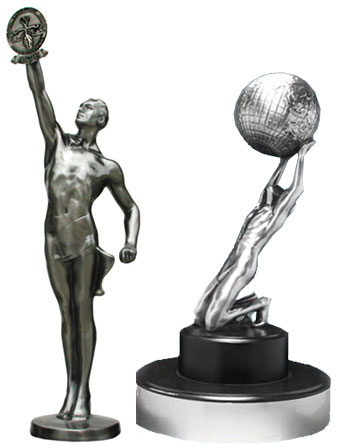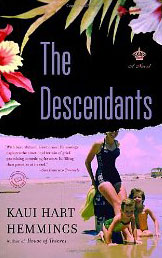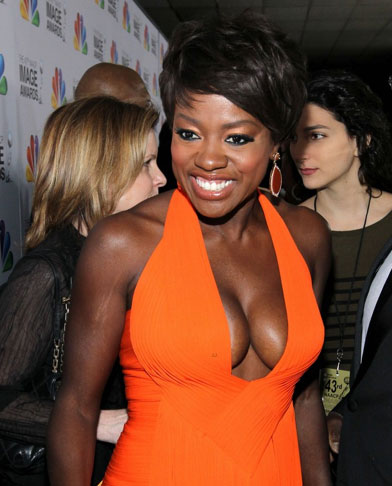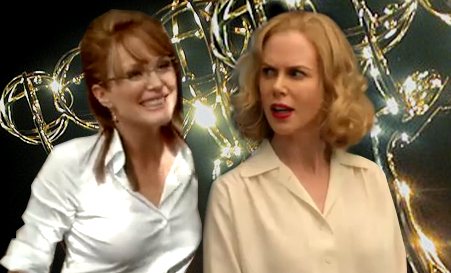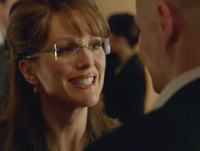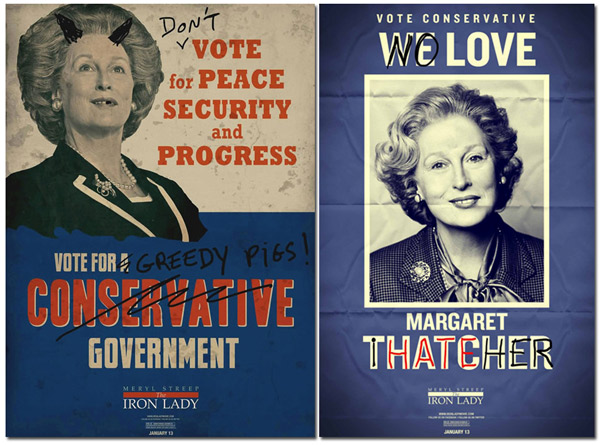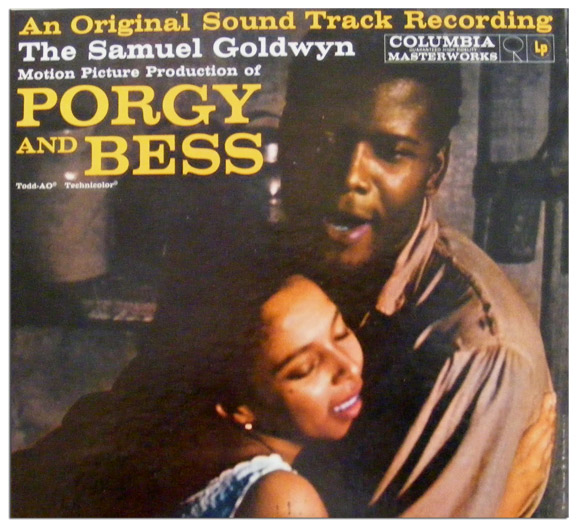Tues Top Ten Pt 1: Takeaways from the 84th Oscars
 Tuesday, February 28, 2012 at 12:17PM
Tuesday, February 28, 2012 at 12:17PM We love to do top tens on Tuesdays and more of them will be coming your way soon. Today's top ten is not strictly ascending, some of these moments I loved and some I decidedly did not but they're ten things that I'm thinking about today and that I imagine will always come up when I think of the 84th Oscars.
TOP TEN TAKEAWAYS
Things to remember, for better and for worse, from the 84th Oscars
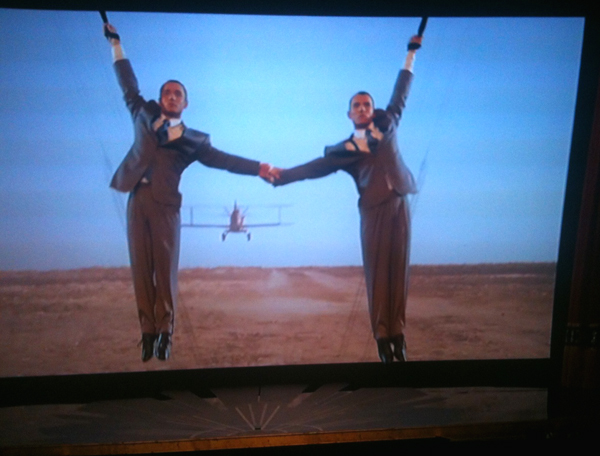
10 Direction is Everything With Dance
When I first heard they were doing a Cirque Du Soleil number at the Oscars, I groaned. Not that I don't enjoy the odd acrobatic but why at the Oscars? If you want it to be a variety show, stop being so inexcusably high and mighty about the Original Song category (that music branch and those rules. sigh) and start nominating 5 songs each year like in every other category. There are several songs this year that might have made for great ceremony moments. But when it began with that graceful, hypnotic liftoff via North by Northwest, my spirit lifted off with the twinned Cary Grants And then crashed back down to earth when I realized that the guy in the control booth had ADD and felt it necessary to show me closeups during big elaborately choreographed acrobats, which made for entirely confusing moments. Sometimes you couldn't even tell what film clips they were dancing to.
 There's a certain cross-section of film critics that have been so cynical and mean spirited about our Best Picture, The Artist, that you'd think it was directed by Ed Wood, Alan Smithee or Michael Bay. They've been so weirdly hyperbolic about their hatred that it's been hard to actually hear an argument within the bile. But the Cirque Du Soleil number only served to illustrate how wise Michel Hazanavicius was with the physicality of The Artist, especially in its last glorious continuous take moments where you could see (wait for it) ENTIRE BODIES DANCING. This is quite possibly the simplest visual performance concept of all, that to understand / absorb / fully enjoy a dance, you have to see the body. It's such a simple concept that 96% of the (modern) time, directors screw it up. Well done Hazanavicius. Should the Oscars choose to ever have musical numbers again, please hire a control booth with less panicy "ohmygodthey'llgetbored" insecurities. It's hardly ever boring to watch great dancing / acrobatics / performances. It's only boring when you can't see them and are forced again and again to look at one particular detail at the expense of the whole.
There's a certain cross-section of film critics that have been so cynical and mean spirited about our Best Picture, The Artist, that you'd think it was directed by Ed Wood, Alan Smithee or Michael Bay. They've been so weirdly hyperbolic about their hatred that it's been hard to actually hear an argument within the bile. But the Cirque Du Soleil number only served to illustrate how wise Michel Hazanavicius was with the physicality of The Artist, especially in its last glorious continuous take moments where you could see (wait for it) ENTIRE BODIES DANCING. This is quite possibly the simplest visual performance concept of all, that to understand / absorb / fully enjoy a dance, you have to see the body. It's such a simple concept that 96% of the (modern) time, directors screw it up. Well done Hazanavicius. Should the Oscars choose to ever have musical numbers again, please hire a control booth with less panicy "ohmygodthey'llgetbored" insecurities. It's hardly ever boring to watch great dancing / acrobatics / performances. It's only boring when you can't see them and are forced again and again to look at one particular detail at the expense of the whole.
09 David Fincher's Oscar Stride
With Kirk Baxter and Angus Wall's semi-surprise win in film editing for The Girl With the Dragon Tattoo (I predicted it as the "spoiler" should there be one and now of course I wish I'd just gone for it fully) they achieved an Oscar miracle: it's the first back-to-back editing Oscar since 1935/1936 when Ralph Dawson took home prizes for A Midsummer Night's Dream and Anthony Adverse. Baxter and Wall won last year for The Social Network and though they really are superb editors, what this most definitely illustrates (along with the great guild showing for Dragon Tattoo) is that David Fincher has really hit his stride with the Academy. It took them a long time to get there but now that they're there expect every one of his films to win nominations in some category or another. It was hard not to view the clip selection for Rooney Mara as the Academy own cheeky response to Fincher's preemptory quipping about his movie's AMPAS fate.
There's too much anal rape in this movie to get nominated."
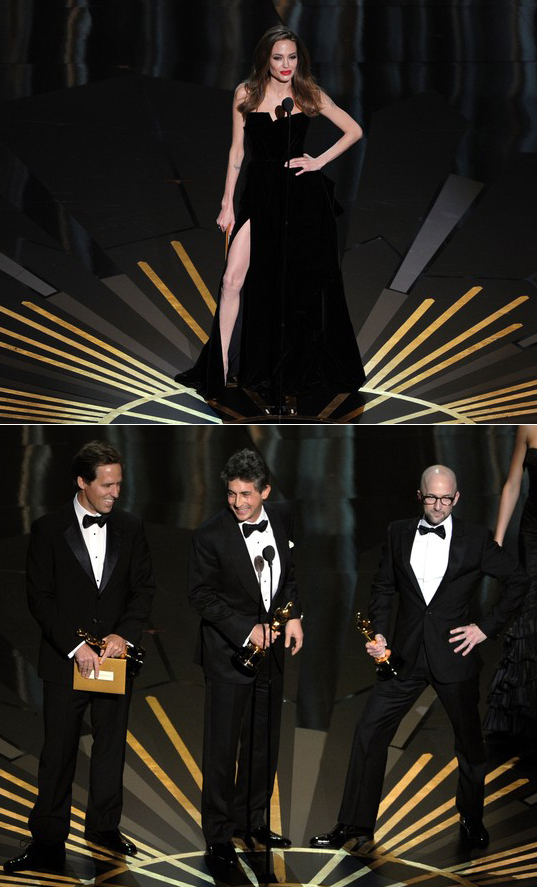
08 Leggy Angelina
Angelina has always felt a bit like a cartoon version of a movie star, so overripe, so perfectly visual. The best part is that she knows it. Her strut to standing hip swung leg out pose was so deliciously diva that it must be celebrated (and mocked by the next Oscar winner) immediately thereafter.
07 Movie Stars Talking About Movies Is Love.
King Kong Morgan Freeman talking King Kong. Brad's amusing description of The Gargantuans. Adam Sandler talking James Bond and Sean Connery's chest hair and saying "can i please do that?" (um which part?) And most of all Gabby Sidibe marveling over "My Left Foot" (who knew?) we love this sort of thing.
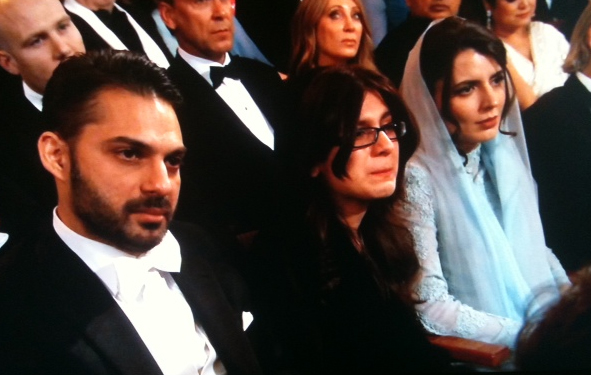 "Nader & Simin" watching Farhadi accept the Oscar
"Nader & Simin" watching Farhadi accept the Oscar
06 Art is Global. Art is Political. Art is Good For the World.
Asghar Farhadi and cast were present and Iran won its first Oscar for Best Foreign Language Film. Farhadi got political in his speech and we're glad he did. Though some of the sentiment was lost in his English, we appreciate any reminder that respectful discourse and rich cultural exchange is possible and admirable, especially in the face of so much lowest common denominator politics. So many politicians these days play on people's worst instincts toward hostility and resentment for all, never thinking through the effects of war mongering rhetoric.
But back to the movies. We hope that A Separation marks a turning point and the category that used to give us the Bergmans and the Fellinis of the world will return to its roots and start giving statues to the masterpieces again. What a great start.
FIVE MORE TO GO - from Jessica to Emma Stone.
But what's your take on these five topics?



